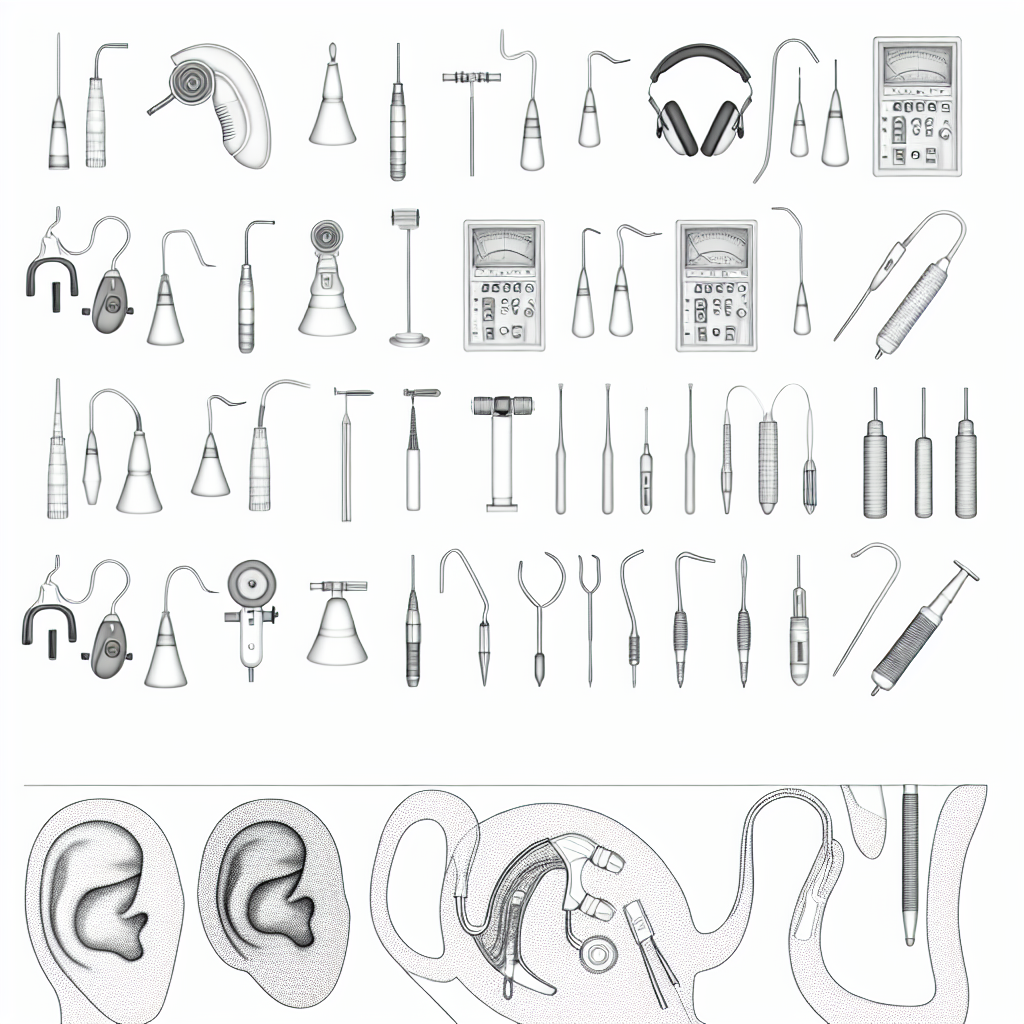
When you visit an audiologist for hearing concerns, you might wonder what specialized equipment they use to evaluate and treat hearing disorders. Audiologists rely on sophisticated diagnostic tools and treatment devices to provide comprehensive care for patients with hearing loss, tinnitus, and other auditory conditions.
Essential Diagnostic Equipment Used by Audiologists
Audiometers are the cornerstone of any audiological practice. These precision instruments measure hearing sensitivity across different frequencies and intensities. Modern audiometers can conduct various types of hearing tests, including pure tone audiometry, speech audiometry, and bone conduction testing. At Cal Hearing’s hearing testing services, we utilize state-of-the-art audiometric equipment to ensure accurate diagnoses.
An audiometric booth or sound-treated room provides the controlled acoustic environment necessary for accurate hearing evaluations. These specially designed spaces eliminate external noise interference, allowing audiologists to obtain precise measurements of a patient’s hearing thresholds.
Specialized Testing Instruments
Audiologists employ several specialized tools for comprehensive hearing assessments:
- Tympanometers – Measure eardrum movement and middle ear function
- Otoacoustic emission (OAE) analyzers – Detect inner ear hair cell function
- Auditory brainstem response (ABR) equipment – Evaluates neural pathways from the ear to the brain
- Real-ear measurement systems – Verify hearing aid performance in the patient’s ear
- Video otoscopes – Provide detailed visualization of the ear canal and eardrum
Hearing Aid Fitting and Programming Tools
Modern hearing aid technology requires sophisticated programming equipment. Audiologists use computer software and specialized hardware to:
- Program digital hearing aids to match individual hearing loss patterns
- Adjust frequency responses and amplification levels
- Fine-tune features like noise reduction and directional microphones
- Conduct real-ear measurements to verify proper fitting
Professional hearing aid fitting services require these advanced tools to ensure optimal performance and patient satisfaction.
Tinnitus Assessment and Treatment Equipment
For patients experiencing tinnitus, audiologists utilize specialized equipment including:
- Tinnitus matching instruments – Determine the pitch and loudness of tinnitus
- Masking audiometers – Assess how external sounds affect tinnitus perception
- Sound therapy devices – Provide relief through customized sound programs
These tools are essential for comprehensive tinnitus therapy services that can significantly improve quality of life.
Hearing Protection and Custom Fitting Tools
Audiologists also use impression-taking materials and equipment to create custom hearing protection devices. This includes:
- Ear impression materials (silicone or foam-based)
- Otoblocks for safe impression taking
- Impression guns and mixing tips
- Digital ear scanning technology
Professional hearing protection services rely on these tools to create perfectly fitted custom earplugs and noise protection devices.
Repair and Maintenance Equipment
Hearing aid repair requires specialized tools and equipment, including:
- Digital microscopes for detailed component inspection
- Ultrasonic cleaners for thorough device cleaning
- Hearing aid analyzers for performance testing
- Battery testers and voltage meters
- Specialized repair tools and replacement parts
Professional hearing aid repair services utilize these tools to restore devices to optimal working condition.
Cal Hearing’s Comprehensive Audiology Services
At Cal Hearing, we invest in the latest audiological equipment and technology to provide exceptional care to patients throughout our service areas. Our comprehensive services include:
- Complete hearing evaluations using advanced diagnostic equipment
- Professional hearing aid fittings with real-ear verification
- Customized tinnitus management programs
- Custom hearing protection solutions
- Expert hearing aid repairs and maintenance
- Ongoing patient support and follow-up care
Our team stays current with the latest technological advances in audiology, ensuring our patients receive the most effective treatments available. For additional information about hearing health and our services, visit our resources section and blog.
The Importance of Professional Audiological Equipment
The sophisticated tools used by audiologists are essential for accurate diagnosis and effective treatment of hearing disorders. From initial assessment through ongoing care, these instruments enable audiologists to provide personalized solutions that improve communication and quality of life for their patients.
Professional audiological care requires not only advanced equipment but also the expertise to interpret results and develop appropriate treatment plans. The combination of cutting-edge technology and clinical knowledge ensures the best possible outcomes for individuals with hearing concerns.
If you’re experiencing hearing difficulties or need professional audiological services, don’t wait to seek help. Early intervention often leads to better outcomes and improved hearing health. Contact Cal Hearing today to schedule your comprehensive hearing evaluation with our experienced team of audiologists.









